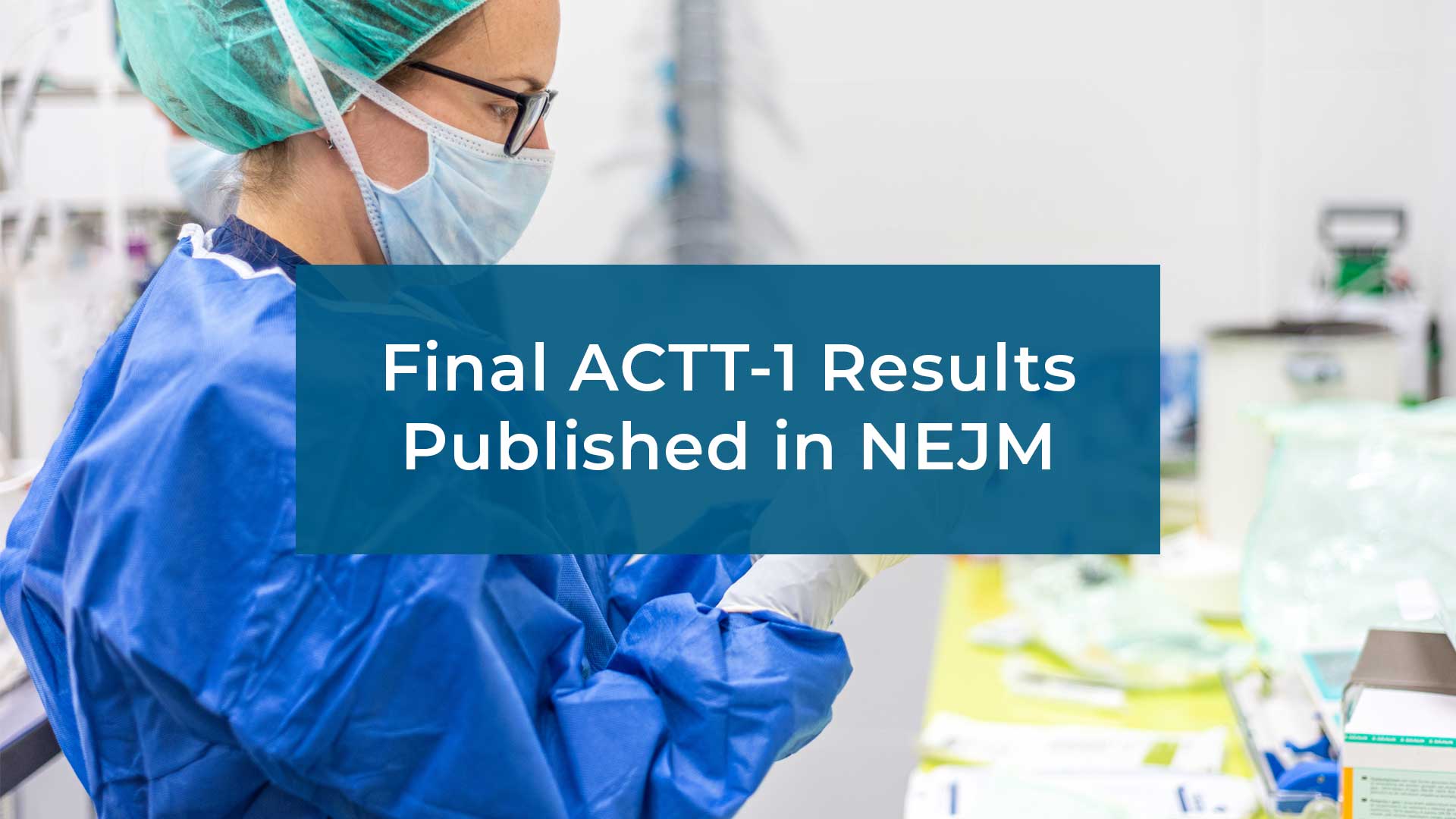Final results of the Adaptive COVID-19 Treatment Trial (ACTT)-1 investigating remdesivir for the treatment of COVID-19 in hospitalized adults with evidence of lower respiratory tract involvement have been published in the New England Journal of Medicine (NEJM).
Of the FHI Clinical study team members, Danielle Fisher, Clinical Research Project Manager, and Wendi McDonald, Associate Project Manager, are listed on the manuscript for their contributions to the study. In addition, Tafoya Hubbard from FHI Clinical has joined the study team as Clinical Research Project Manager.


Danielle Fisher, Clinical Research Project Manager (left), and Wendi McDonald, Associate Project Manager (right), are listed on the manuscript for their contributions to the study.
This trial is the first stage in a series of phase 3, randomized, double-blind, placebo-controlled trials to evaluate the clinical efficacy and safety of putative investigational therapeutic agents among hospitalized adults with laboratory-confirmed COVID-19. These results are an update to the preliminary report that was published in the NEJM in May 2020.
Funded by the National Institute of Allergy and Infectious Diseases, enrollment for ACTT-1 lasted for ~8 weeks, beginning on February 21, 2020 and ending on April 19, 2020. During this time, 1062 participants were recruited at 60 study sites and 13 subsites in the United States (45 sites), Denmark (8), United Kingdom (5), Greece (4), Germany (3), Korea (2), Mexico (2), Spain (2), Japan (1) and Singapore (1). Intravenous remdesivir (n=541) or placebo (plus standard care; n=521) was administered for up to 10 days, to determine the effect on time to recovery (discharge or change in status to infection control only).
The final analysis showed that the overall findings were consistent with those in the preliminary analysis: a 10-day course of remdesivir performed better than placebo in treating hospitalized patients with COVID-19. Patients receiving remdesivir had a significantly shorter median recovery time of 10 days (95% CI 9-11), compared with 15 days (95% CI 13-18) with the placebo; this corresponds to a rate ratio for recovery of 1.29 (95% CI 1.12-1.49). At day 15 with remdesivir, clinical improvement was significantly better, and estimated mortality rates were lower (6.7% vs 11.9%). In addition, patients treated with remdesivir stayed in the hospital a median 5 days less than patients receiving placebo.
Based on these results, the authors concluded that remdisivir is superior to standard care alone in shortening the time to recovery in adults hospitalized with COVID-19 and evidence of lower respiratory tract infection. In addition, there may be benefits for decreased use of health care resources, with shorter hospital stays and less need for respiratory support.
The FHI Clinical team is excited to be part of this important work to find efficacious and safe treatments for COVID-19. Additional information about the study can be found on clinicaltrials.gov, including the next trials in the series: ACTT-2, which is evaluating the effect of combination baricitinib and remdesivir compared with placebo on recovery, and ACTT-3, which is evaluating the effect of combination interferon beta-1a and remdesivir compared with placebo on recovery.
Read our brochure to learn more about FHI Clinical’s COVID-19 services.


